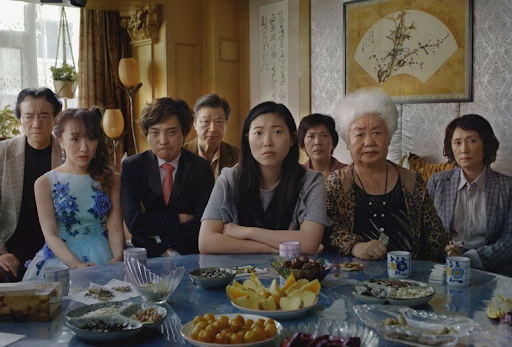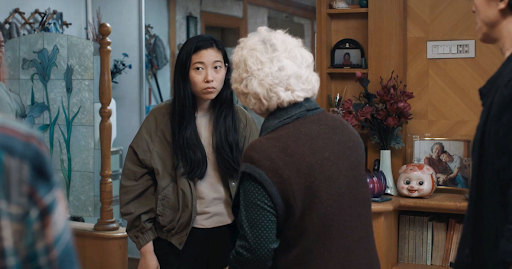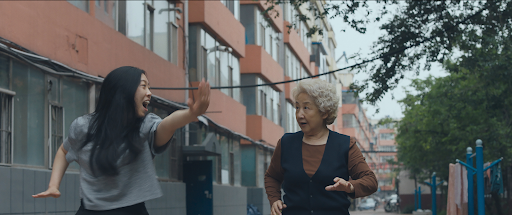Director Lulu Wang chooses to take what could have been a forgettable Adam Sandler-type goofball comedy in a more dramatic route, using dark comedy in unexpected and subtle ways. This story feels all the more emotional and real because it is; Wang wrote this story based on her own experience of having to lie to her grandmother about cancer. Although her grandmother eventually recovered, she never even knew about the seriousness of her illness or the secret kept from her until The Farewell came out.
The film is also visually beautiful, with a palette of mostly earth tones and muted pastel colors, although there are also some scenes with much richer and more vibrant colors. Most scenes also try to play around a dual-color scheme, usually some form of blue and brown, which adds a sense of balance in a very aesthetically pleasing way. The camera is almost always static with relatively long takes, allowing the characters to have conversations and exist around each other without being edited together. The relationships all feel more real due to this choice, the positive emotions being drawn out as well as the negative, the awkward, the sad.
Although not Wang’s directorial debut, with her first film Posthumous coming out in 2014, this is easily the film that has skyrocketed her to the mainstream, and deservedly so. The intensely emotional and personal angle this movie takes is only bolstered by its dark and ironic comedy, and I can’t recommend it enough.
The Farewell is now streaming for free on Amazon Prime.




 RSS Feed
RSS Feed
